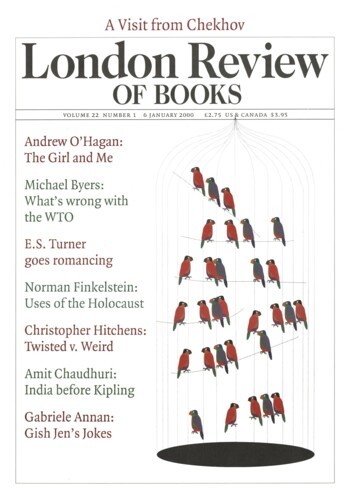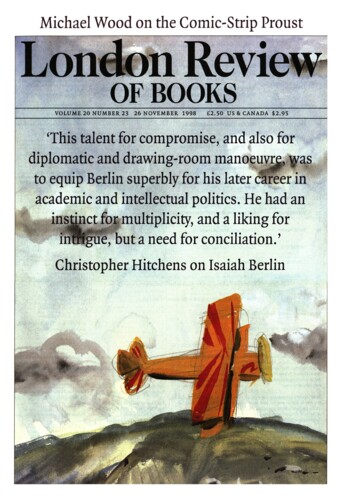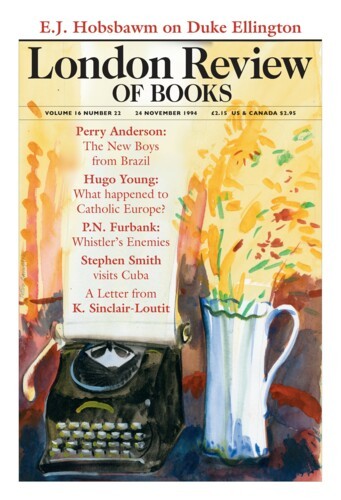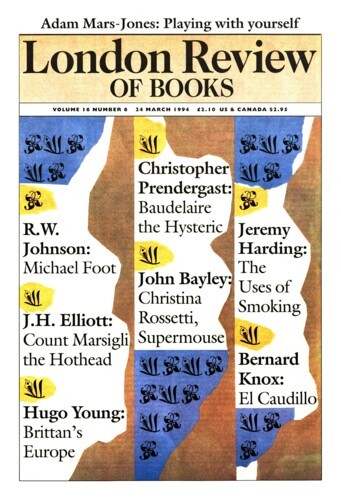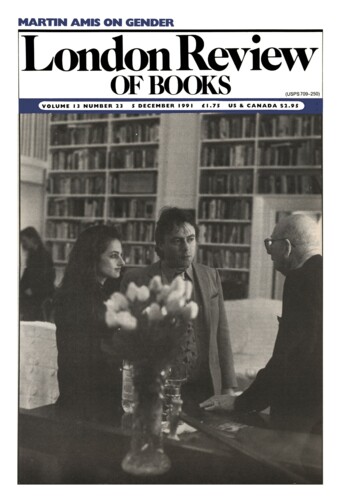Little More than an Extension of France: The British Isles
Hugo Young, 6 January 2000
The main island, the Great Isle, of what became known, centuries later, as the British Isles had a peculiar geography. It was ideally proportioned for the division that was eventually made of it. No inland location lay more than two days’ march from the coast, which gave a marked advantage to maritime invaders. The position of the main estuaries – the Solway, the Clyde, the Forth, the Dee, the Severn, the Thames and the Humber – made it possible for each of the more mountainous parts of the island to be isolated by invaders and guarded by them. When they lost the towns and forts commanding these estuaries, the resident Celts were pushed back into their mountain fastnesses. The inhabitants at this time mostly were Celts, of the British rather than Southern European variety – we’re speaking of the turn of the fifth and sixth centuries. The invaders were Angles, or other Germanic peoples, and they created a chaotic patchwork of statelets which took half a millennium to evolve into larger political and cultural units.’
